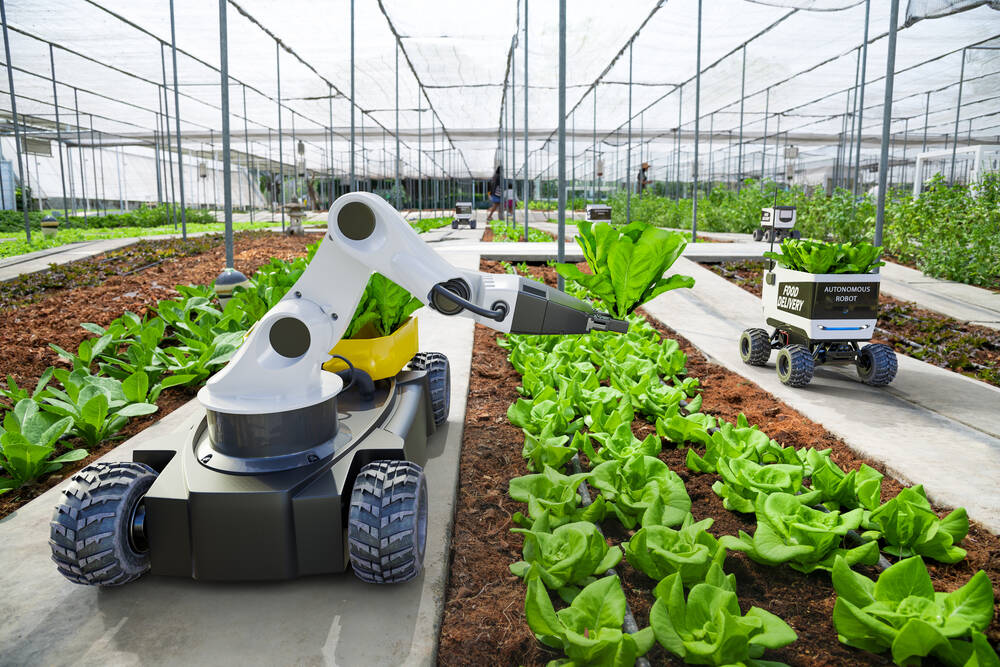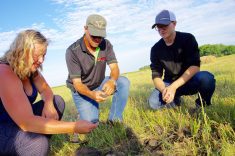Canada is an agriculture exporting superpower, but it should also be a leader in agriculture technology, says a late 2024 report.
Created by the Arrell Food Institute at the University of Guelph and the Food and Agriculture Institute at the University of the Fraser Valley, the report recommends four strategies to drive increased success in agriculture technology: helping ag tech companies scale, training the next generation, reducing the risk of investing and mobilizing applied research.
Why it matters: Farms struggle with growing productivity amid labour shortages and a healthy ag tech innovation system can help.
Read Also

Canadian Cattle Association names Brocklebank CEO
Andrea Brocklebank will take over as chief executive officer of the Canadian Cattle Association effective March 1.
Canada produces significant intellectual property and primary research in agriculture, but has historically struggled to get those ideas to market. There’s also a gap in venture funding along the agriculture technology development process, where few funders exist.
The approach needs the industry, government and academia to work together, says Erin Doherty, strategic initiatives lead at the Arrell Food Institute.
Entrepreneurs are working to scale products, keep the lights on and make payroll, so adding complexity to programs and funding adds challenges.
“We do have a lot of services and support,” says Doherty. “It is so complicated to maneuver it. Every organization has a different form to fill out, a different timeline and often those timelines don’t align for funding.”
Greater co-ordination and a one-stop shop for access to programs and funding can make sense.
Entrepreneurs in agriculture bring skills, ideas and energy to their new businesses, but in Canada scaling those businesses can be challenging, especially with longer testing intervals in agriculture.
Doherty says a tech entrepreneur not in agriculture can go to Toronto and find 100 people to test their product with little challenge. In agriculture, finding a farm, building a relationship and then testing within a limited time is challenging.
Extension services could help, although governments have reduced agriculture extension services over the past 20 years.
Farmers could be incentivized to become early adopters, the report suggests. Other notes include standards to facilitate inter-operable and shareable technology and training entrepreneurs to merge technical skills with more business savvy.
The institute also pointed to local value-added food processing. Doherty said food processing facilities give an entrepreneur with a new technology more chances to test it locally, reducing the time to market.
Training the next generation
Entrepreneurs need many skills, so more interdisciplinary programs that integrate science, agriculture, business and funding sources should be created, the report noted. Other suggestions include micro-credential programs to address skill gaps and, in general, more awarement about employment chances in agriculture, especially in underrepresented groups.
Reducing investment risk
The Netherlands has an innovation working group called its Top Team approach. The report suggests something similar for Canada, established by governments and composed of academic, industry, community and government representatives.
Governments should explore ways to drive capital and public-private partnerships to support later-stage companies to help them scale. Early-stage companies that need funds could work with producer organizations, extension and specialized incubators to create support from investors.
There is also the matter of the regulatory barriers that the industry thinks hinders growth more than is needed to uphold Canada’s rigorous standards.
Doherty says that large institutional investors are still trying to figure out agriculture and the risk involved, especially when they have expensive requirements, like measuring carbon impact.
Mobilizing applied research
Research incentives could be more innovative when assessing research impact, the report noted. There could be challenge-based prizes and demonstration projects funded by governments.
The nation-wide decline in agriculture and rural advisory services is another problem, authors said.
Industry and academia should also collaborate more on knowledge sharing to develop applied solutions that can increase business funding in research and development, authors wrote.
How was the study completed?
In late 2023 and 2024, the Arrell Food Institute at the University of Guelph and the Agriculture Institute at the University of the Fraser Valley consulted 100 industry, academic, government and community experts across Canada.

















